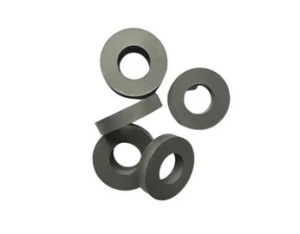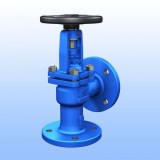China ferrite magnets are known for their high resistance to corrosion and demagnetization, as well as their low cost compared to other types of magnets. They are commonly used in a variety of applications, such as loudspeakers, motors, generators, magnetic couplings, and magnetic separators.
Properties and Characteristics of Ferrite Magnets
Properties and Characteristics
Ferrite magnets, also known as wholesale ceramic magnets, have several properties and characteristics: High resistance to demagnetization, high resistance to corrosion, low cost, low energy density, high-temperature stability, a brittle, wide range of magnetic properties.
Overall, wholesale ferrite magnet are a versatile and widely used type of permanent magnet that offers a range of properties and characteristics that make them suitable for many different applications.
The Benefits of Ferrite Magnets
permanent ferrite magnet, also known as ceramic magnets, offer several benefits: high resistance to demagnetization, high resistance to corrosion, low cost, a wide range of magnetic properties, high-temperature stability, and non-toxic, and environmentally friendly. They are suitable for many different applications and industries, from consumer products to industrial applications.
How to Test the Quality of Ferrite Magnets?
There are several ways to test the quality of ferrite magnets. Here are some common methods:
Magnetic field strength test: This test measures the magnetic field strength of the magnet using a Gauss meter or a flux meter. The strength should be consistent across the surface of the magnet.
Pull strength test: This test measures the maximum force required to separate the magnet from a metal surface. The pull strength should be consistent across the surface of the magnet.
Coercivity test: This test measures the magnetic field required to demagnetize the magnet. The coercivity should be high, indicating that the magnet is resistant to demagnetization.
Visual inspection: A visual inspection can reveal any cracks, chips, or other defects in the magnet.
Temperature stability test: This test measures the magnet's ability to maintain its magnetic properties at high temperatures. The magnet should maintain its magnetic strength even at high temperatures.
Salt spray test: This test measures the magnet's resistance to corrosion by exposing it to a salt spray environment for a specified period. The magnet should show no signs of corrosion or degradation.
Overall, testing the quality of ferrite magnets requires specialized equipment and expertise. It is recommended to consult a professional or the manufacturer for proper testing procedures and interpretation of results.
There are many ferrite magnets suppliers, but we are one of the best choices for you.
For more information about custom magnets wholesale or buy ceramic magnets, please feel free to contact us!
Location : Zhenzhong Rd 9, Hangzhou 310030, 310030 Hangzhou,
Contact : magnetics ty, +57 1 86 78 19 12








